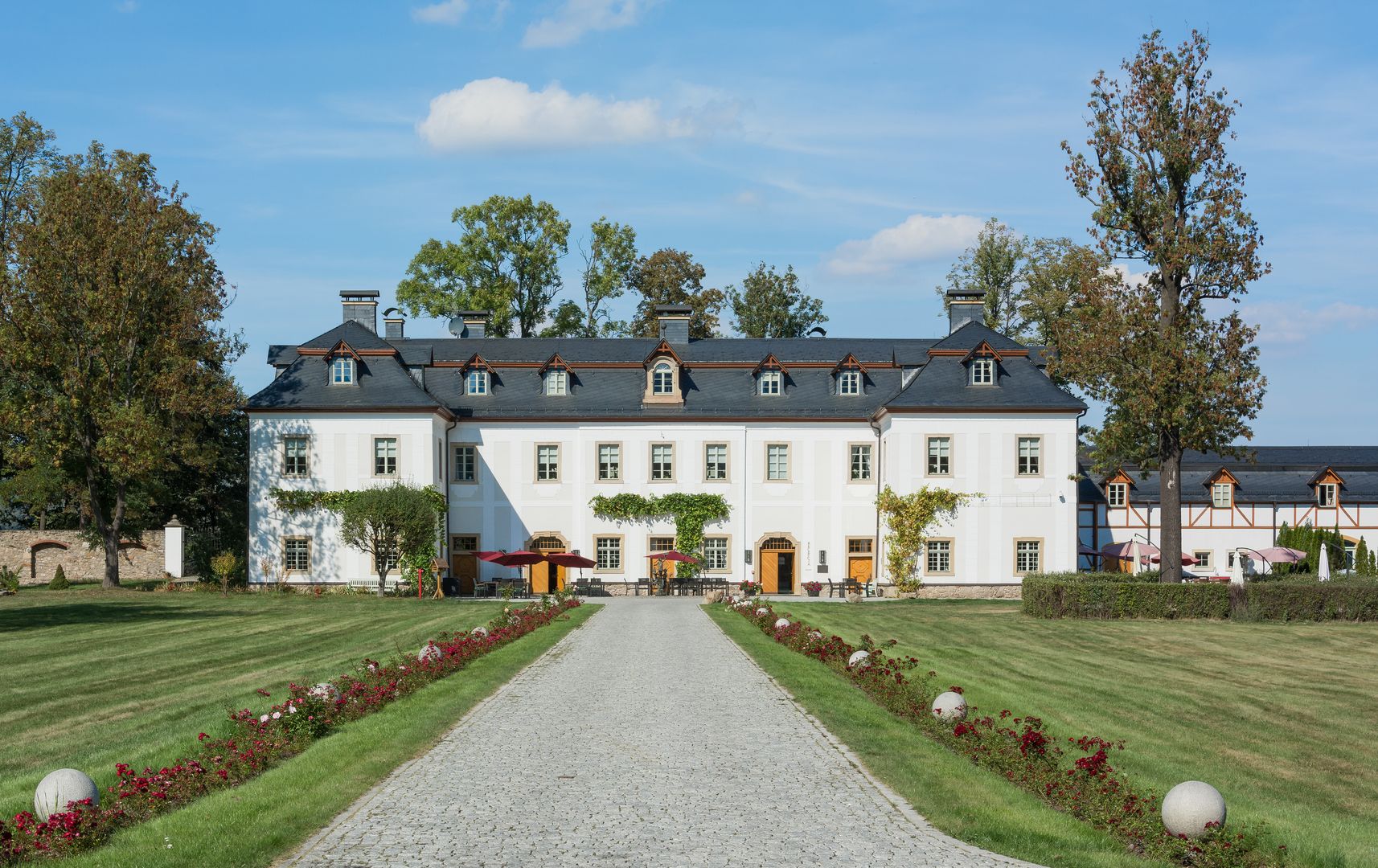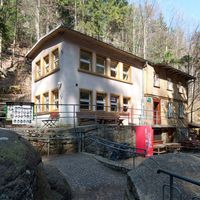Piechowice
7.09

Overview
Piechowice is a town in the Lower Silesian Voivodeship, located in the Karkonosze Mountains, featuring monuments listed in the provincial register, such as a half-timbered house from the 18th/19th century, the "Uroczysko" guesthouse from 1890, and a railway water tower from 1909. The surroundings of the town also include valuable architectural objects, such as the 17th-century palace complex in Pakoszów, the 14th-century filial Church of the Blessed Sacrament in Piastów, and the neo-Romanesque Catholic Church of St. Anthony of Padua. Piechowice, with a history dating back to the turn of the 13th and 14th centuries, was granted town rights in 1967, and its development is associated with glassmaking traditions and the arrival of the railway in the 19th century. An interesting fact is that during World War II, production was relocated from Berlin to Piechowice, resulting in the preservation of defensive installations. The municipality boasts numerous tourist attractions, including the Szklarka Waterfall, the Śnieżne Kotły cirques, and a 500-year-old yew tree protected as a natural monument. Piechowice is known for its annual "Crystal Weekend," which attracts craftsmen and tourists associated with crystal production. The town's culture is shaped by an art gallery and private theaters that organize artistic events. The municipality is crisscrossed by numerous hiking trails and cycling routes, and the town enjoys good transportation links with Jelenia Góra, Szklarska Poręba, and Karpacz. Piechowice is also a hub for sports activities, with the Lechia Piechowice club and the student sports club "Krokus," which achieves success in biathlon. The partner town of Piechowice is the Czech Úpice.
Location
You can also find here:
2026 Wizytor | All Rights Reserved


